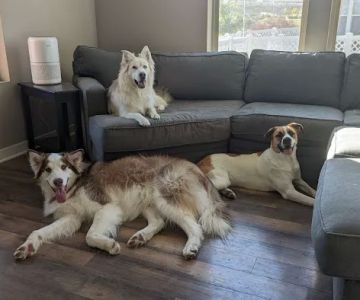What is Para Veterinary: Understanding the Role and Importance in Animal Care
If you’ve ever visited a veterinary clinic or animal hospital, you’ve likely encountered a para veterinary professional. But what exactly is para veterinary, and how does it differ from the traditional role of a veterinarian? As someone who has spent time in both animal care settings and working with various animal healthcare professionals, I’ve come to truly appreciate the importance of para veterinary workers and the essential role they play in the well-being of animals.
- 1. What is Para Veterinary?
- 2. The Difference Between Veterinarians and Para Veterinary Professionals
- 3. Key Duties and Responsibilities of Para Veterinary Professionals
- 4. Becoming a Para Veterinary Professional
- 5. Real-World Examples and Stories from the Field
- 6. Why Para Veterinary Professionals Are Essential to Animal Health
1. What is Para Veterinary?
The term "para veterinary" refers to a profession that works alongside veterinarians to provide support in the care of animals. Para veterinary professionals are often referred to as veterinary technicians, assistants, or support staff. Their role is to assist in performing clinical tasks such as administering medications, monitoring animals, preparing them for surgery, conducting lab tests, and providing general care. They play a vital role in ensuring that animals receive the best possible care in a timely and efficient manner.
In my own experience, I’ve witnessed how para veterinary workers manage complex tasks that are critical to an animal’s recovery or well-being. Whether it's administering vaccines, taking X-rays, or assisting with anesthesia, these professionals are an integral part of any veterinary team. They work closely with veterinarians to ensure a smooth and efficient operation, especially in busy animal hospitals.
2. The Difference Between Veterinarians and Para Veterinary Professionals
While veterinarians and para veterinary professionals work together to care for animals, their roles are distinct. Veterinarians are licensed medical professionals who diagnose and treat animals for various health conditions. They are responsible for making decisions on the best course of treatment, performing surgeries, and managing overall animal care. Becoming a veterinarian requires extensive education, including earning a Doctor of Veterinary Medicine (DVM) degree.
On the other hand, para veterinary professionals are often considered the "right hand" of veterinarians. They assist in implementing the treatments and protocols decided by the veterinarian. While para veterinary professionals are not responsible for diagnosing or treating animals independently, they possess specialized training that allows them to perform essential tasks. Their duties include preparing animals for exams, conducting diagnostic tests, and assisting during surgeries—often under the supervision of a veterinarian.
3. Key Duties and Responsibilities of Para Veterinary Professionals
Para veterinary professionals have a wide range of responsibilities. Some of their key duties include:
- Administering Medications: One of the most important tasks that para veterinary professionals perform is administering medications to animals. This includes giving injections, oral medications, or topical treatments as prescribed by the veterinarian.
- Assisting in Surgeries: Para veterinary workers play an essential role in preparing animals for surgery. They assist in anesthetizing animals, monitoring vital signs during surgery, and providing post-operative care.
- Conducting Laboratory Tests: Para veterinary professionals often collect samples from animals (such as blood, urine, or tissue) and send them to laboratories for analysis. They also help interpret test results and provide insights to the veterinarian.
- Performing Imaging Procedures: Many para veterinary workers are trained to take X-rays and ultrasound images to help veterinarians diagnose conditions in animals. They position animals properly for imaging and ensure proper technique is followed for accurate results.
- Client Communication: Para veterinary professionals often interact with pet owners to provide updates on their animals’ care and offer guidance on post-treatment instructions.
4. Becoming a Para Veterinary Professional
If you’re considering a career in para veterinary care, there are various pathways to getting started. For many individuals, becoming a veterinary technician or assistant involves enrolling in a formal education program. These programs typically last from one to two years and are offered by accredited colleges and universities. Some programs even offer certification exams to ensure that individuals are qualified to perform the duties required of them.
During my time working in an animal care facility, I had the opportunity to collaborate with veterinary technicians who had received certifications and training through programs in their field. These professionals were knowledgeable and dedicated, providing hands-on care and support that made a big difference to the animals they cared for. Having the right education and practical experience is crucial to success in the para veterinary profession.
5. Real-World Examples and Stories from the Field
One story that stands out to me is from a time I worked with a para veterinary technician at an animal hospital. A dog had been brought in after being hit by a car, and the situation was critical. The para veterinary technician immediately assisted the veterinarian by stabilizing the dog, administering pain relief, and monitoring the animal’s vitals. It was a fast-paced, high-stress situation, but the teamwork between the technician and the veterinarian was incredible. The quick actions and expertise of the para veterinary technician helped save the dog’s life.
Another example that illustrates the importance of para veterinary professionals is in the field of diagnostics. One time, a cat came in with unusual symptoms, and the veterinarian wasn’t able to immediately identify the issue. The para veterinary technician took the initiative to conduct additional lab tests, which eventually led to a diagnosis of kidney disease. Without the technician’s attention to detail, the condition might have gone unnoticed until it was too late. These stories reflect how essential para veterinary professionals are in the overall care and well-being of animals.
6. Why Para Veterinary Professionals Are Essential to Animal Health
The role of para veterinary professionals is critical to ensuring the health and care of animals. Their expertise and hands-on skills help veterinarians provide the best care possible, making them indispensable to any animal healthcare setting. Whether it's assisting in surgeries, administering treatments, or educating pet owners, para veterinary workers are at the forefront of animal care.
Having worked alongside many para veterinary professionals, I can say with confidence that these individuals are not just assistants—they are skilled, knowledgeable professionals who play a key role in the success of animal health care. If you’re passionate about animals and interested in pursuing a career in animal healthcare, becoming a para veterinary professional might be the perfect choice for you.











